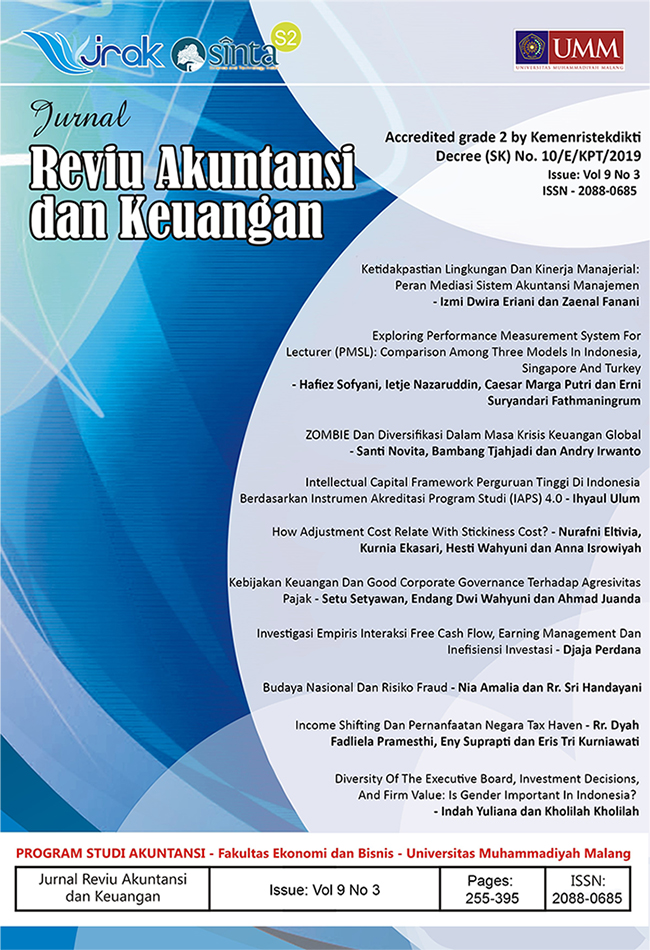ZOMBIE DAN DIVERSIFIKASI DALAM MASA KRISIS KEUANGAN GLOBAL
DOI:
https://doi.org/10.22219/jrak.v9i3.9904Keywords:
diversification, financial, crisis, related, zombieAbstract
This study aims to examine whether a firm with a higher degree of related diversification is less likely to have a zombie condition during the global financial crisis. The research sample is non-financial firms listed on the Indonesia Stock Exchange in the year of the global financial crisis from 2007-2009. Data are analyzed using logistic regression. The results of the study indicate that a firm with a higher degree of related diversification is less likely to have a zombie condition during the global financial crisis. Furthermore, the effect of this diversification proves to be higher for a firm with a domestic orientation than an international orientationDownloads
Download data is not yet available.
Downloads
Published
2019-12-03
Issue
Section
Articles
License

Jurnal Reviu Akuntansi dan Keuangan is licensed under a Creative Commons Attribution-NonCommercial-ShareAlike 4.0 International License.
Authors who publish with this journal agree to the following terms:
- Authors retain copyright and grant the journal right of first publication with the work simultaneously licensed under a Creative Commons Attribution-NonCommercial-ShareAlike 4.0 International License that allows others to share the work with an acknowledgement of the work's authorship and initial publication in this journal.
- Authors are able to enter into separate, additional contractual arrangements for the non-exclusive distribution of the journal's published version of the work (e.g., post it to an institutional repository or publish it in a book), with an acknowledgement of its initial publication in this journal.
- Authors are permitted and encouraged to post their work online (e.g., in institutional repositories or on their website) prior to and during the submission process, as it can lead to productive exchanges, as well as earlier and greater citation of published work (See The Effect of Open Access).










